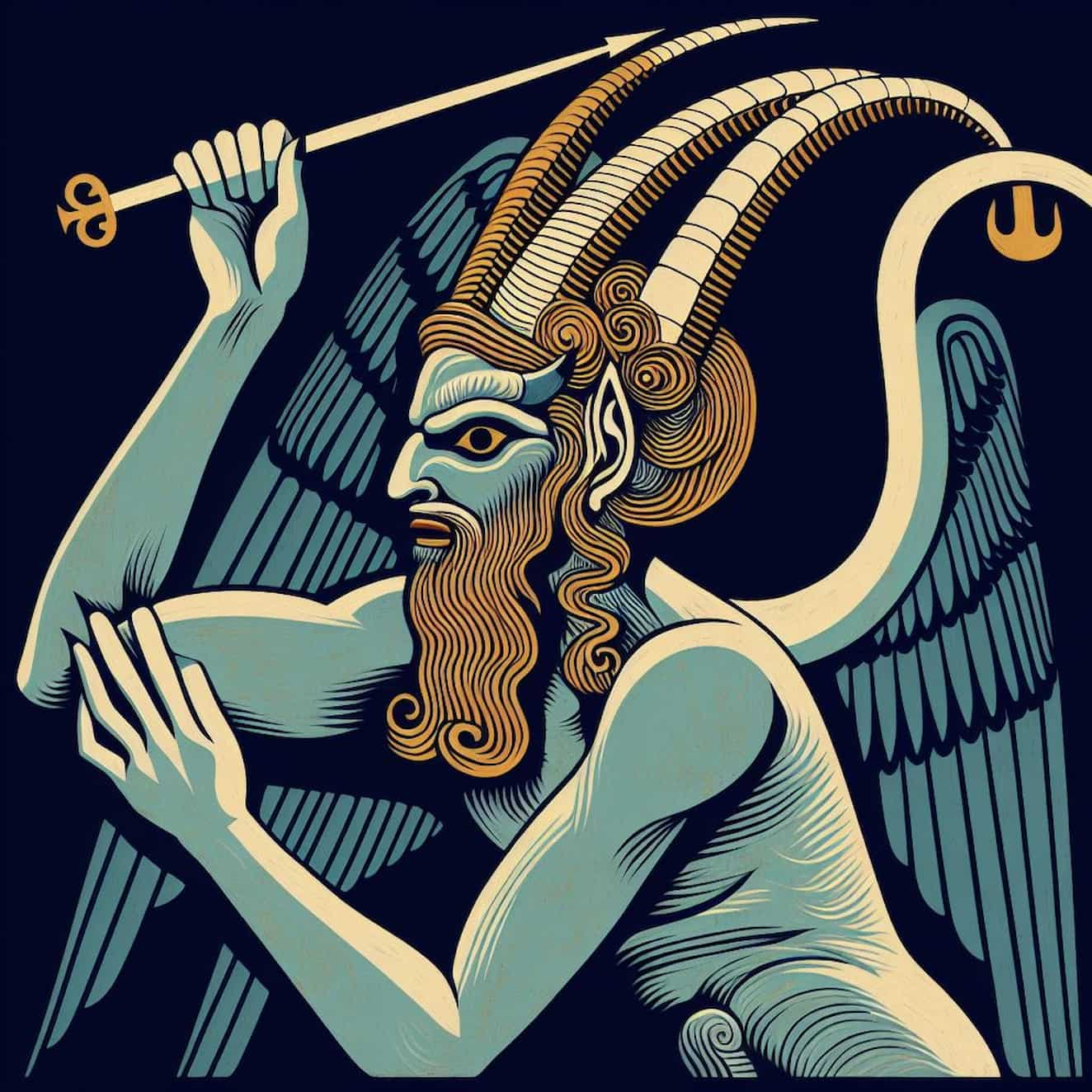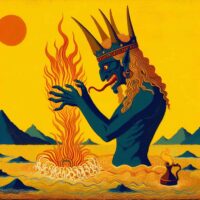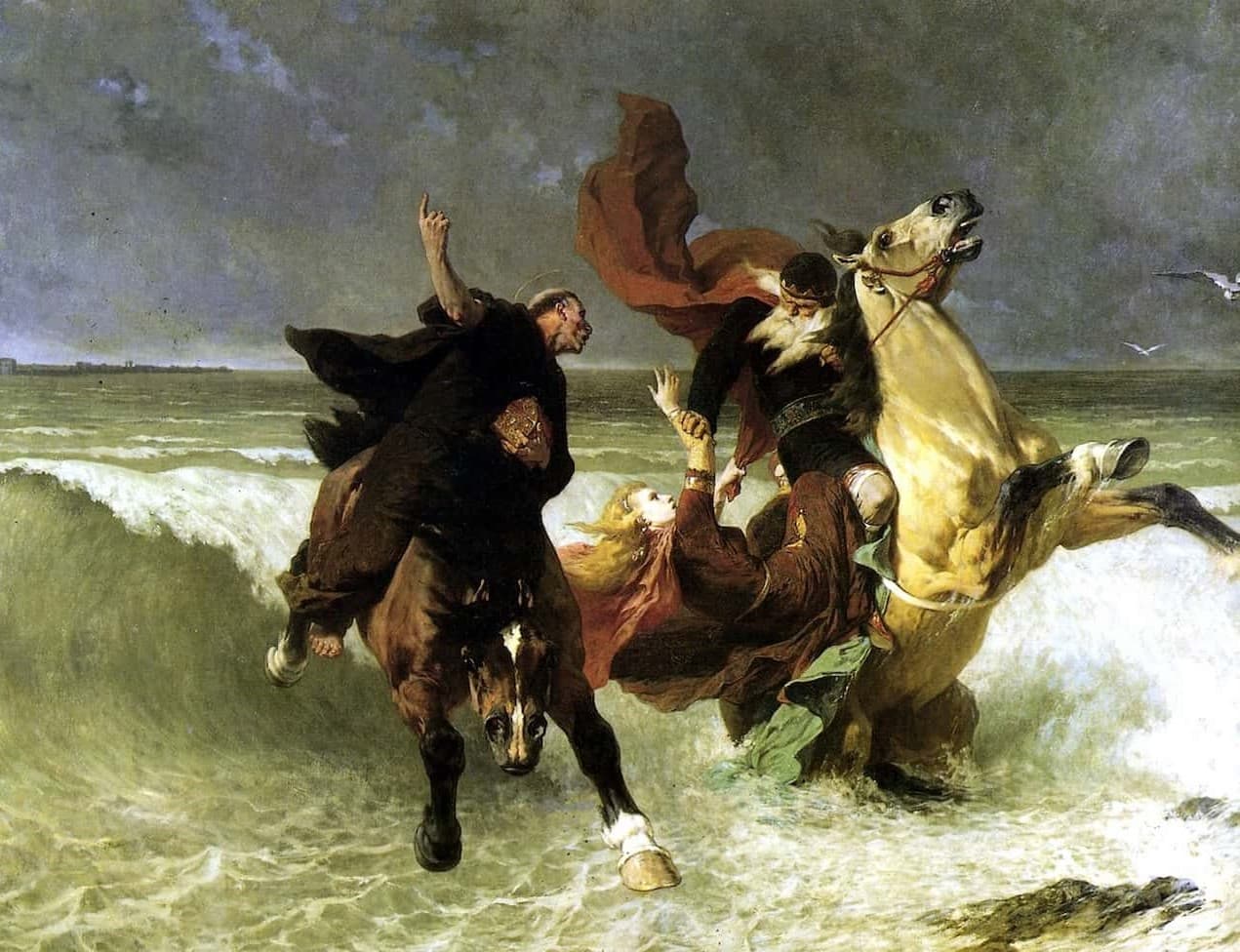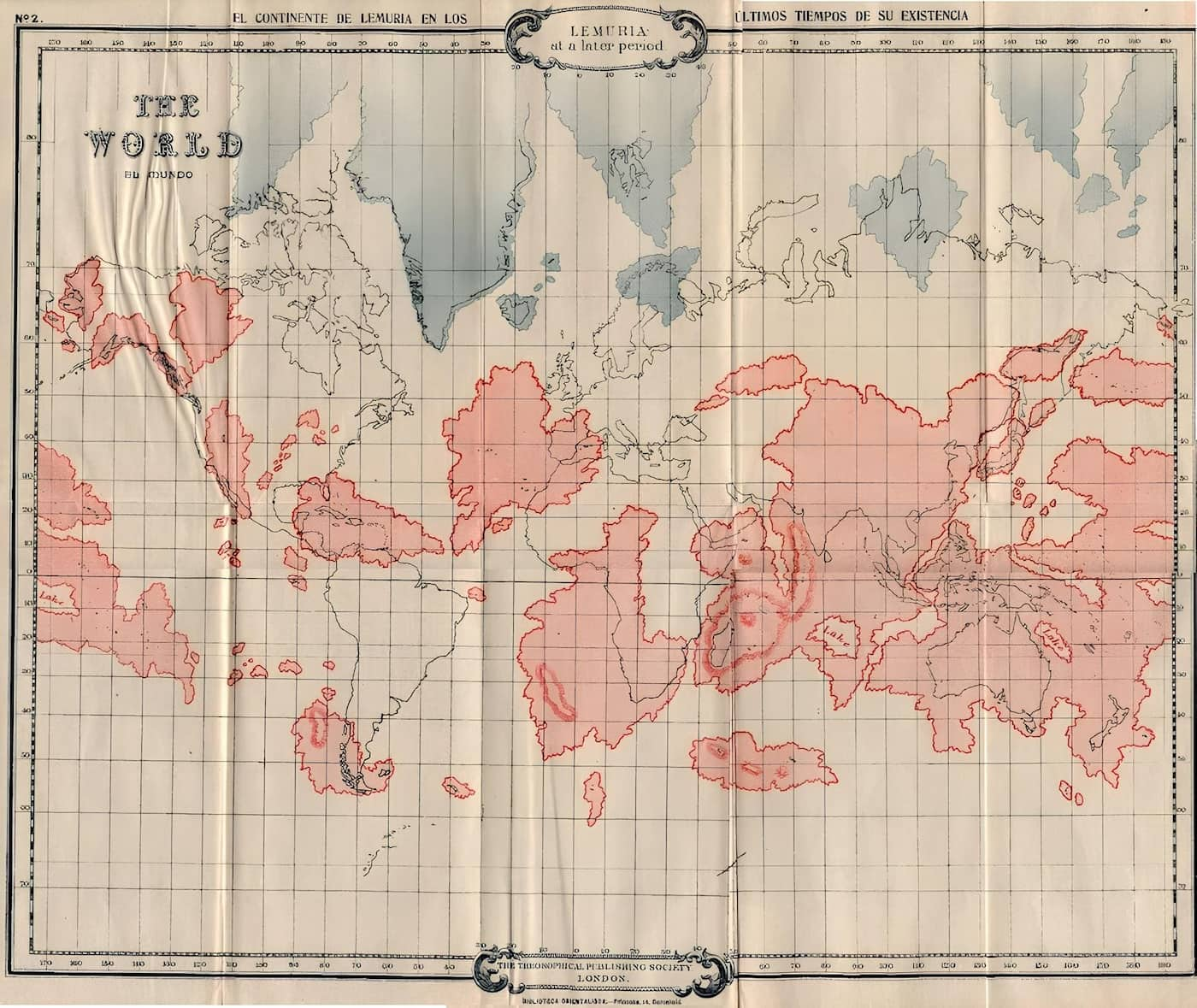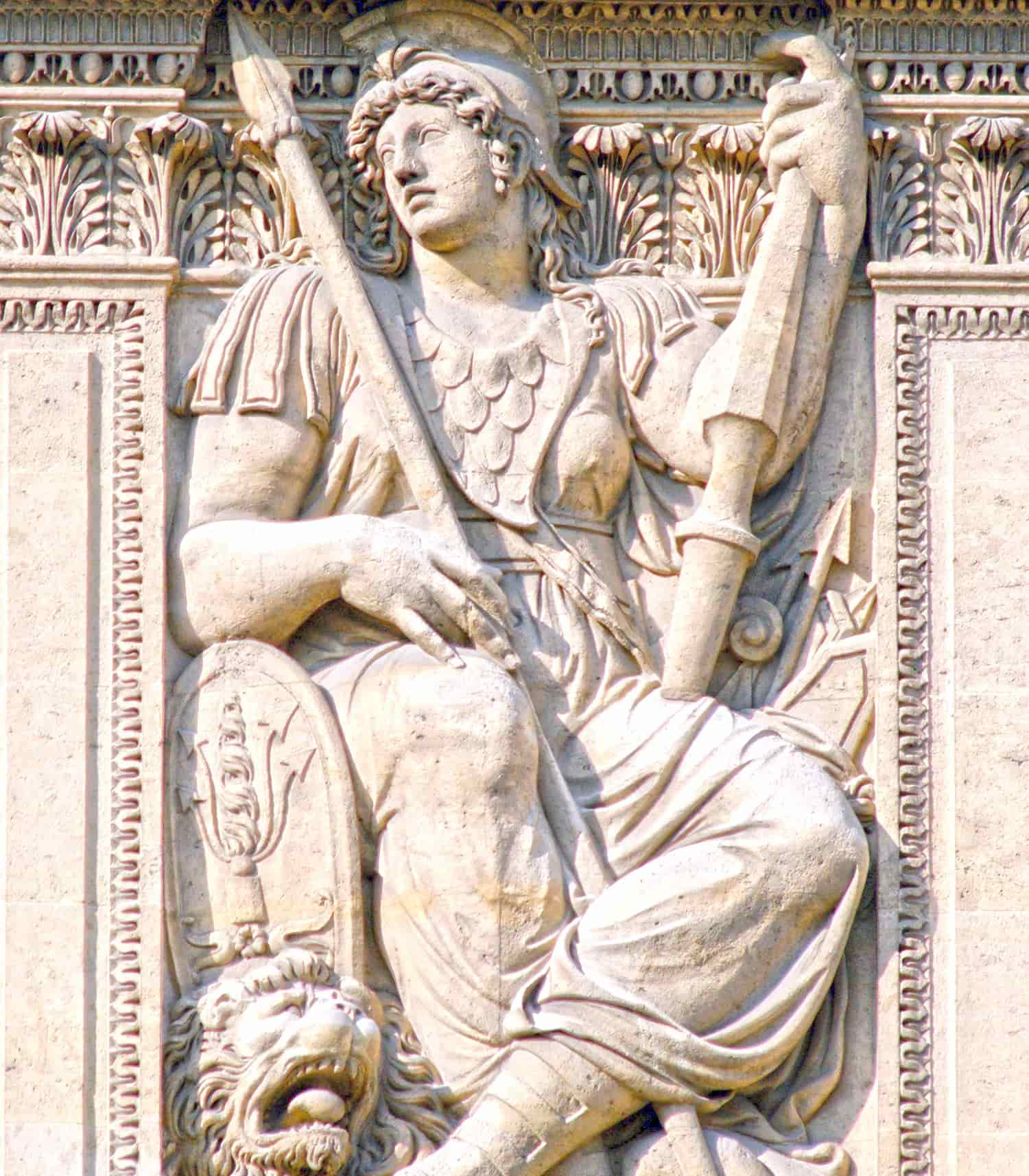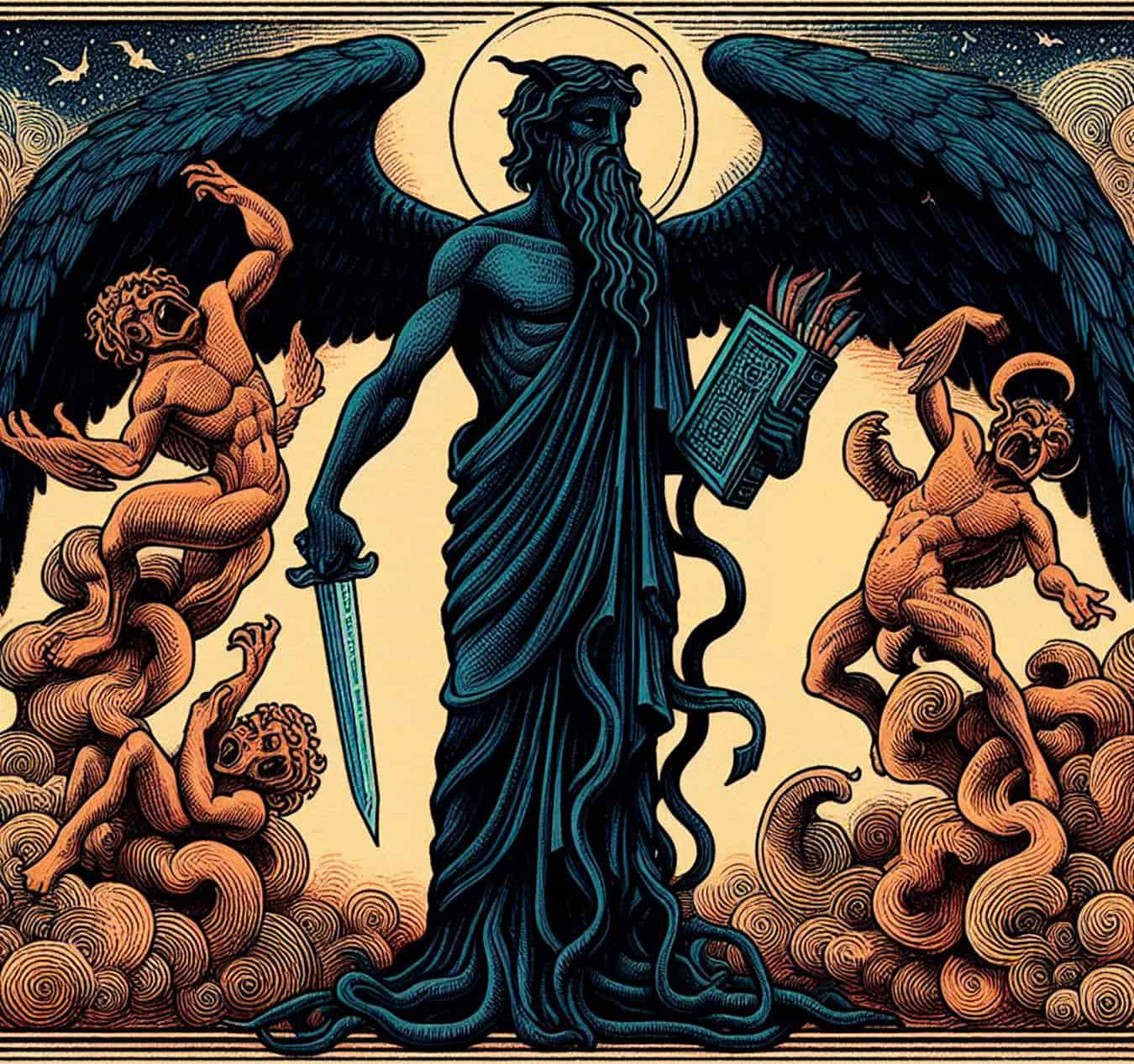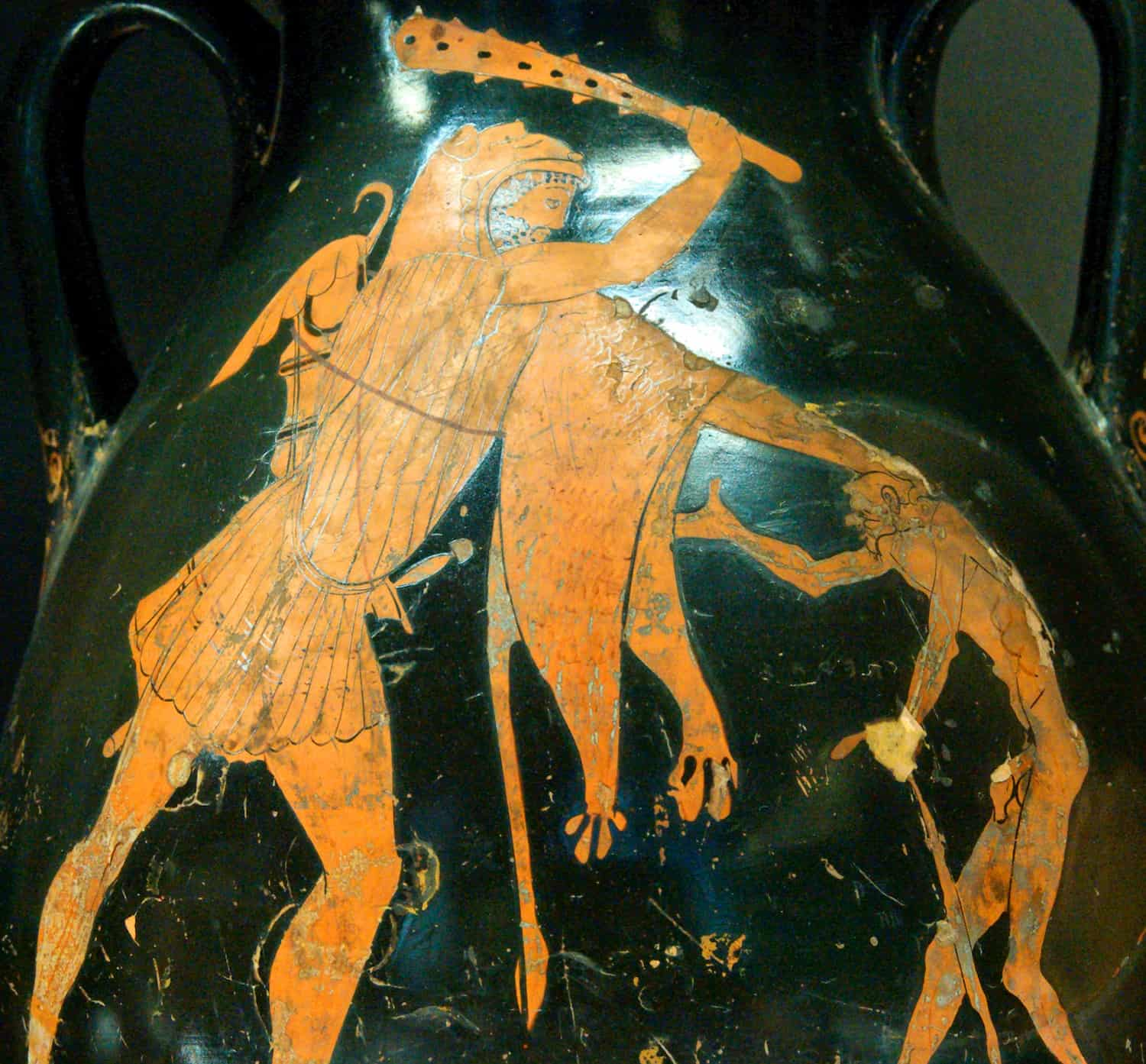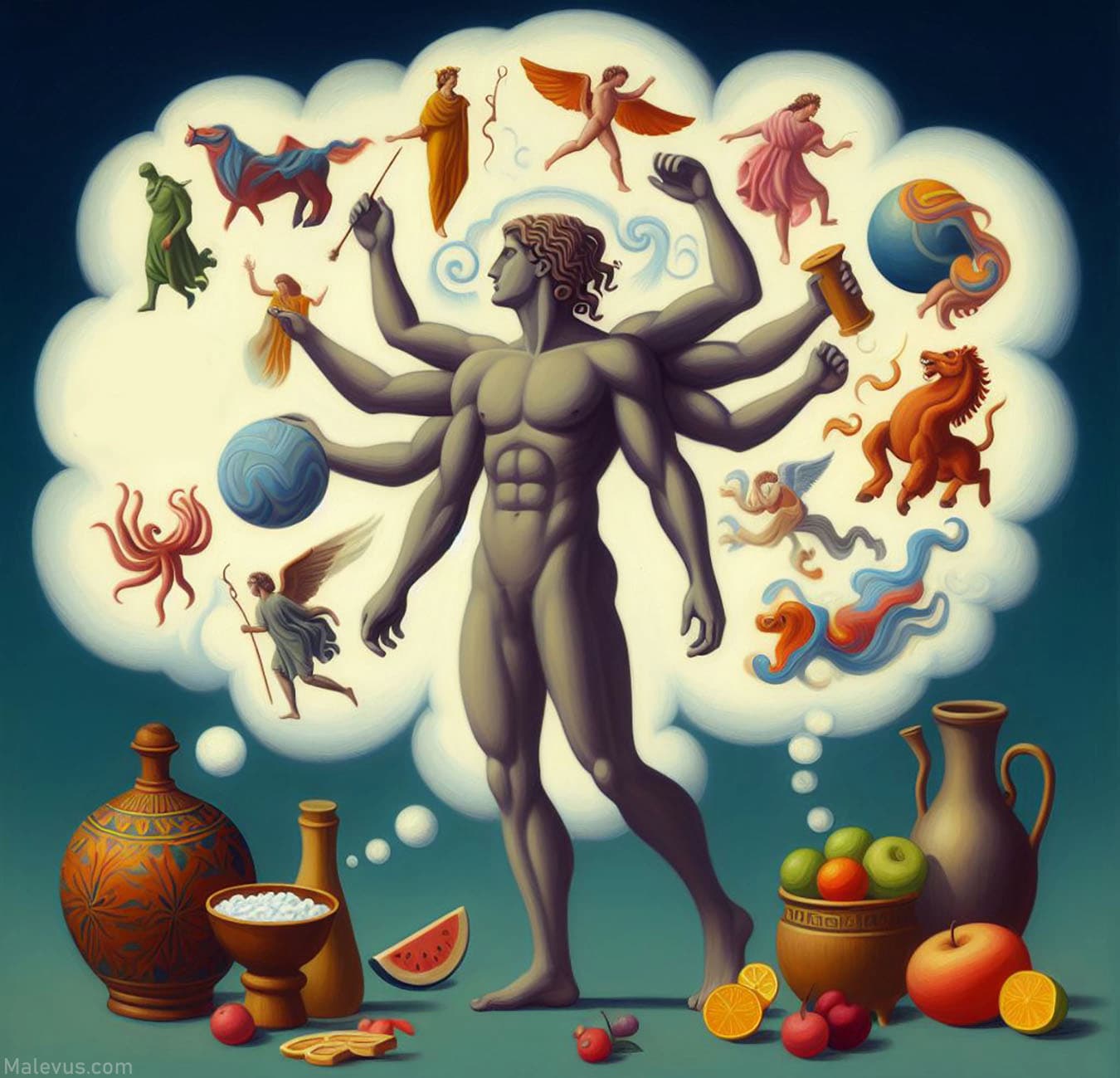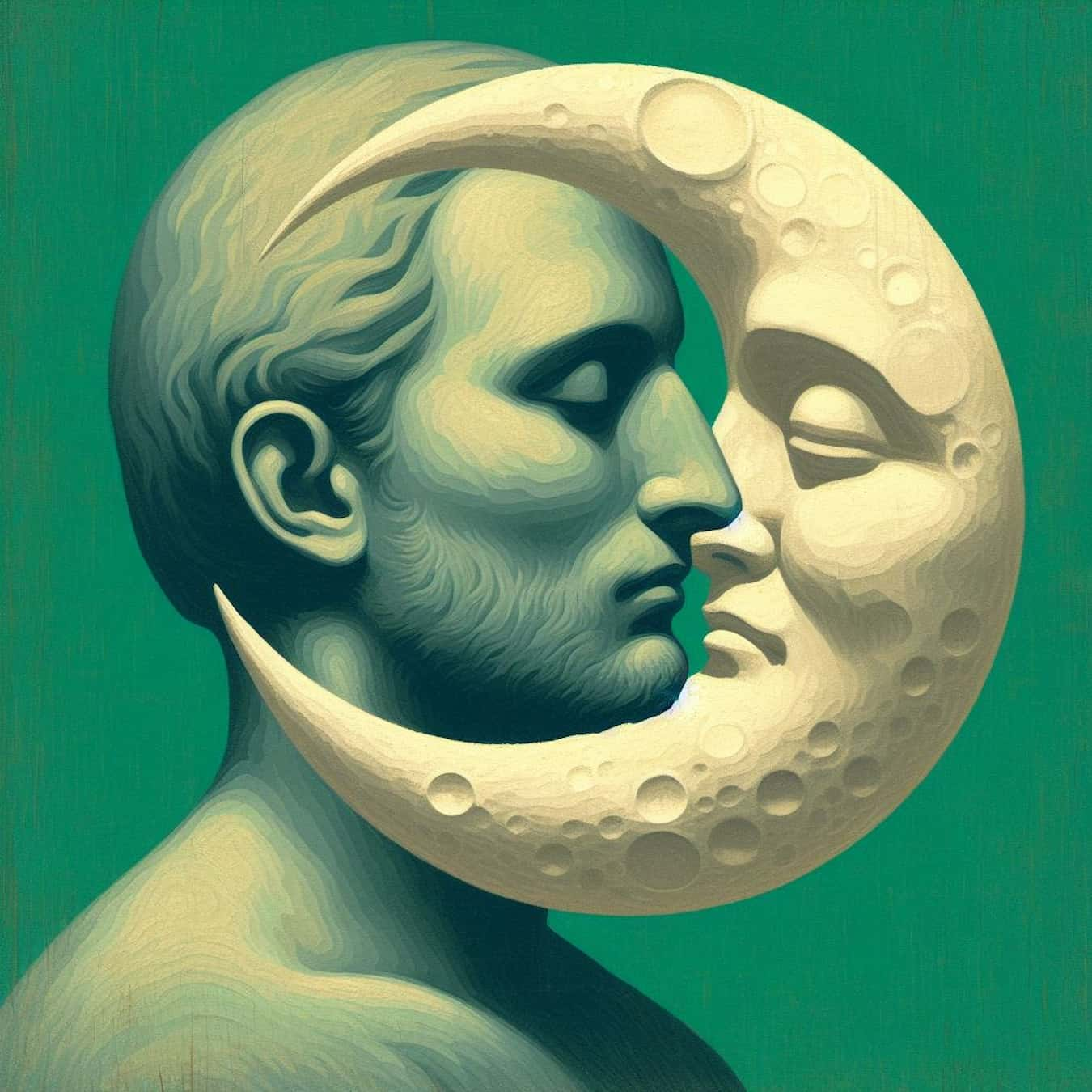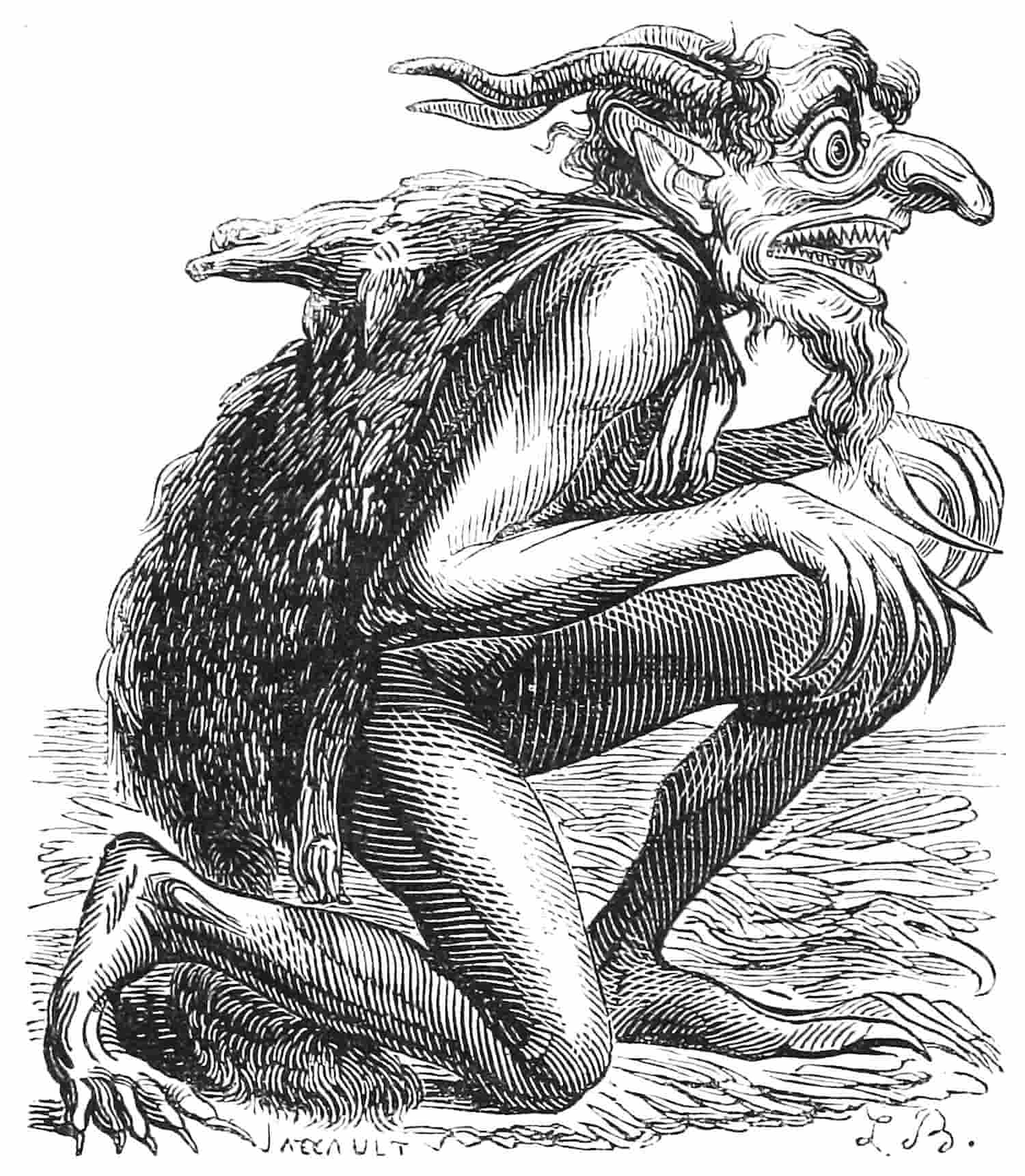Gallu (also galla, gallû) is a demon in Sumerian mythology. There were seven of them, and they served the death goddess Ereshkigal. Unlike other beings, the gallu were able to freely move between the world of the living and the world of the dead. When on earth, they would capture the living and take them to the underworld. They could not be bribed and they were said to be both large and small. In some texts, the gallu are described as having tusks and claws like those of a beast, while in others, they are depicted as bull-like in appearance.
Gallu was also a term for an official whose task was to oversee the enforcement of laws. This profession may have resembled that of a modern-day police officer. This meaning was apparently the original one. Later, it expanded to refer to highway robbers and eventually demons. In myths, it is not always clear whether the term gallu refers to an official, a bloodthirsty bandit, or a supernatural being. There may be several layers in these stories, through which the mundane narrative gradually acquires supernatural elements. Often, gallu demons are described as capturing, chaining, and punishing other characters in the story.
The ghūl in Arabian mythology may have been inspired by Mesopotamian gallu tales.
In Literature
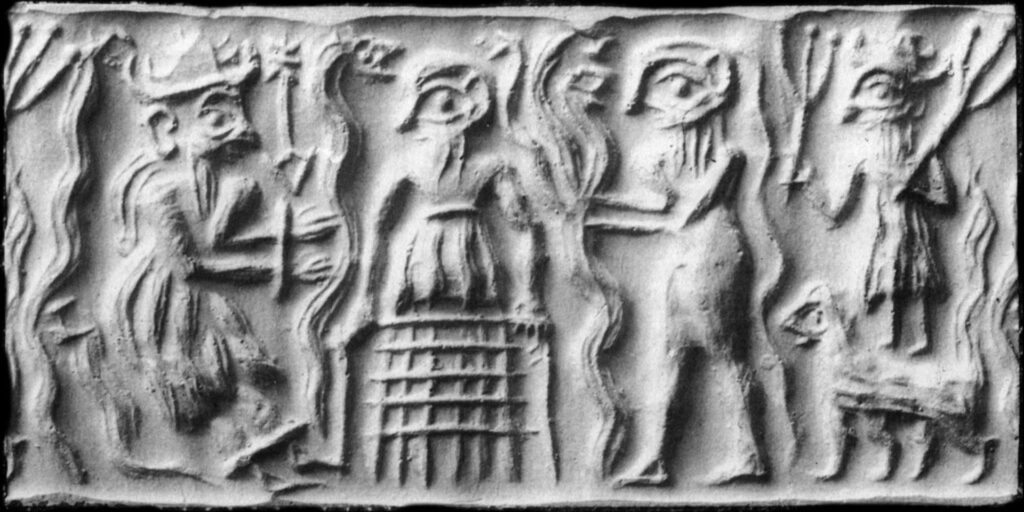
The descent of Inanna into the underworld tells the story of the goddess Inanna fleeing from her sister Ereshkigal’s dark realm and being pursued by demons. They lead her to the upper world and demand that she choose someone to take her place in the underworld. The small demons are as tall as a low reed fence, and the large ones are as tall as a high reed fence. The demon at the front holds a scepter, and the one behind carries a mace. “They do not know food or drink; they do not accept grain offerings or libations.” The demons do not accept gifts and are not interested in sex or reproduction. They differentiate between husband and wife, father and son, and bride and in-laws.
The story of Dumuzid and G̃eštinanna also recounts Inanna’s descent into the underworld and its consequences. As the price of her release, Inanna gives her beloved Dumuzid to the demons. The demons chain Dumuzid and torture him with sharp objects and branding irons.
Next, the demons sharpen their “large copper axes,” strip Dumuzid, “do evil to him,” and cover his face with his own clothes. Dumuzid prays to Utu and he finally manages to escape.
The demons pursue him and search for him everywhere. One of the small demons says to the larger ones, “Demons have no mother, no father, no sister or brother, no wife or children.
” Since the time of the creation of earth and sky, demons have existed “around people like a reed fence.” Demons are not gentle and do not know good from evil. No one can escape from them without help, so the small demon suggests that the demons go search for Dumuzid among his relatives, where he is eventually found.
In Dumuzid’s dream, the demons try to bribe Dumuzid’s sister G̃eštinanna into revealing her brother’s whereabouts.
The small demon tells the wise demon that a sister would not betray her brother, but a friend might betray a friend. Dumuzid’s nameless friend accepts the bribes, and the seven demons catch Dumuzid, who loses his life.



